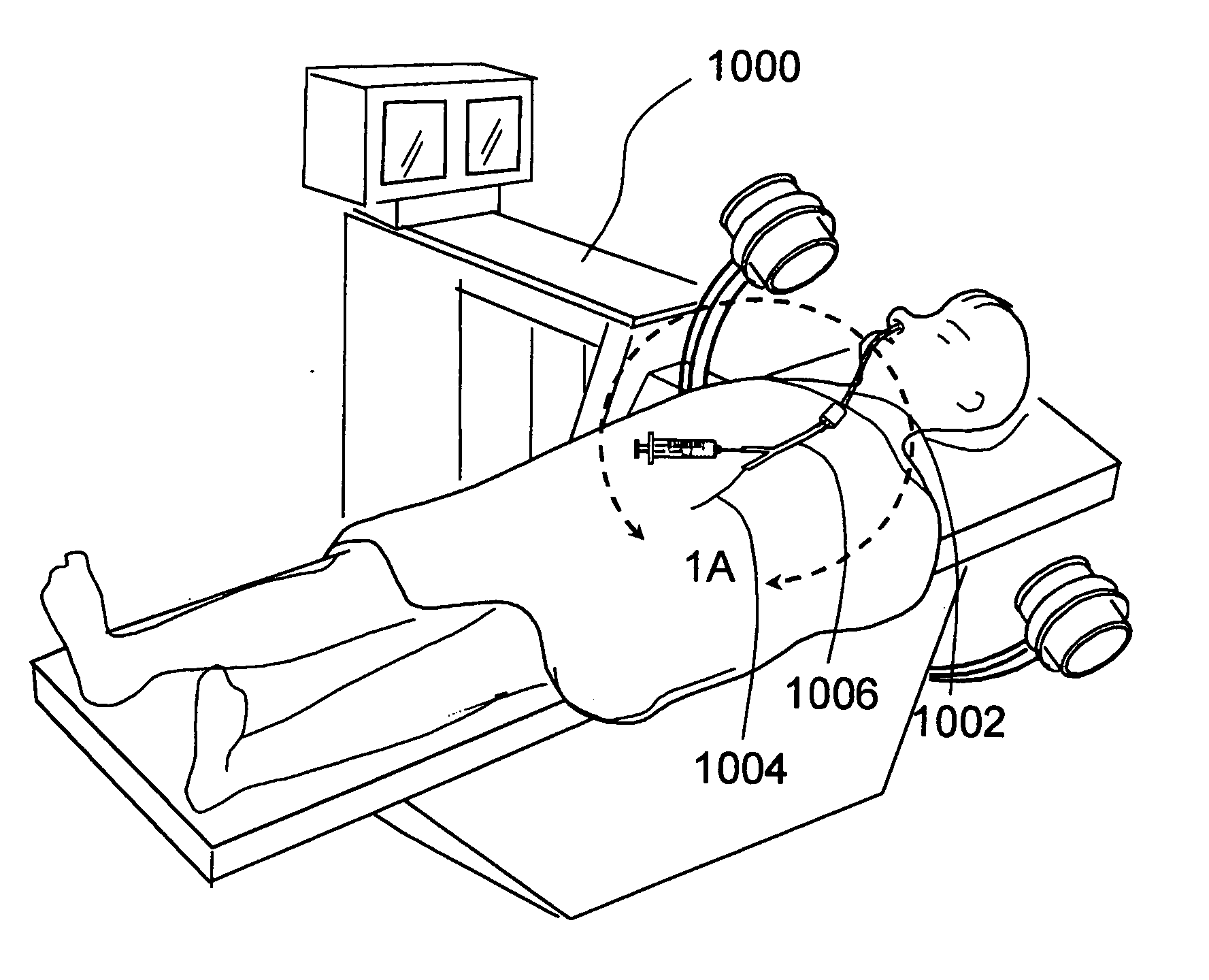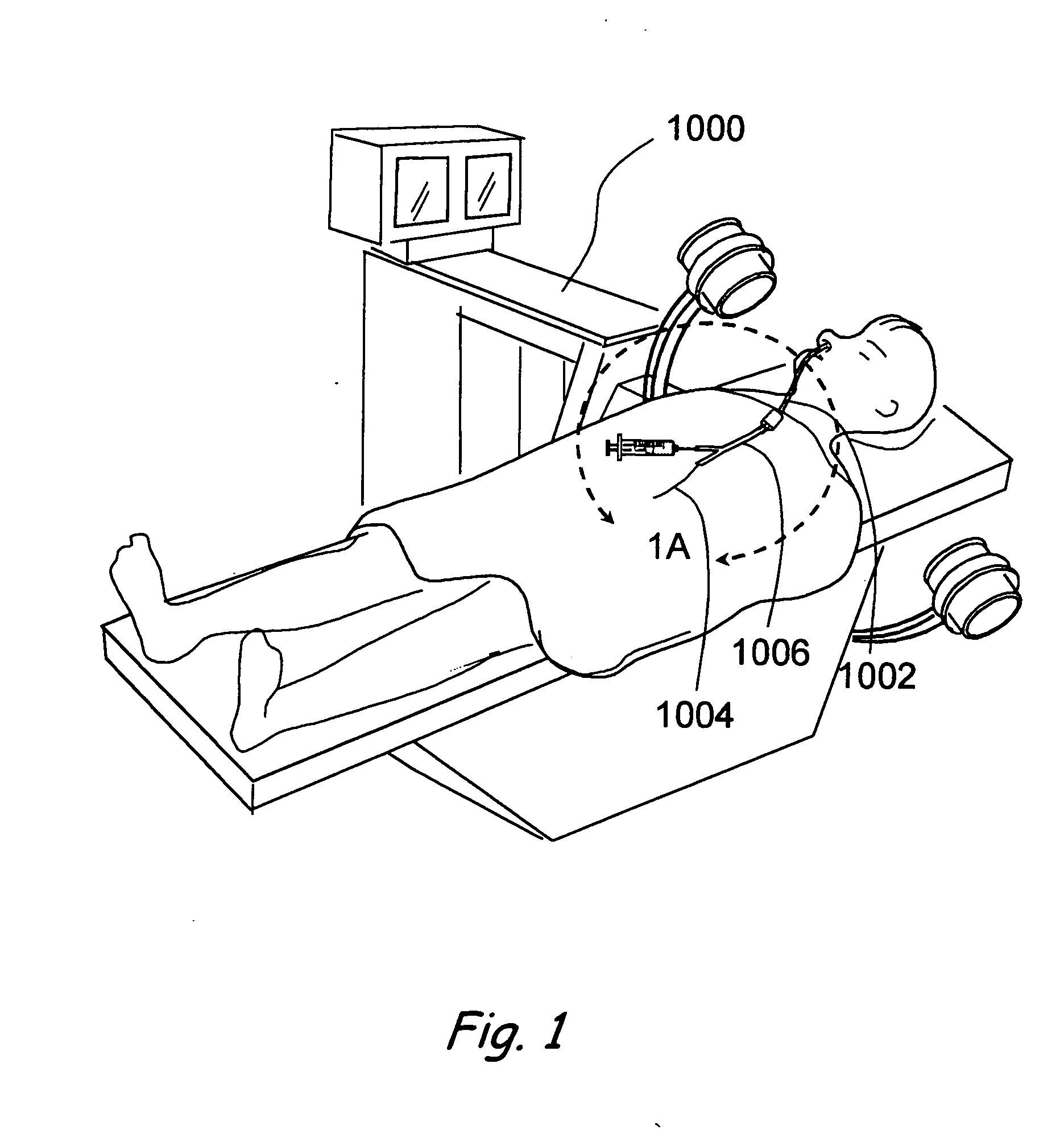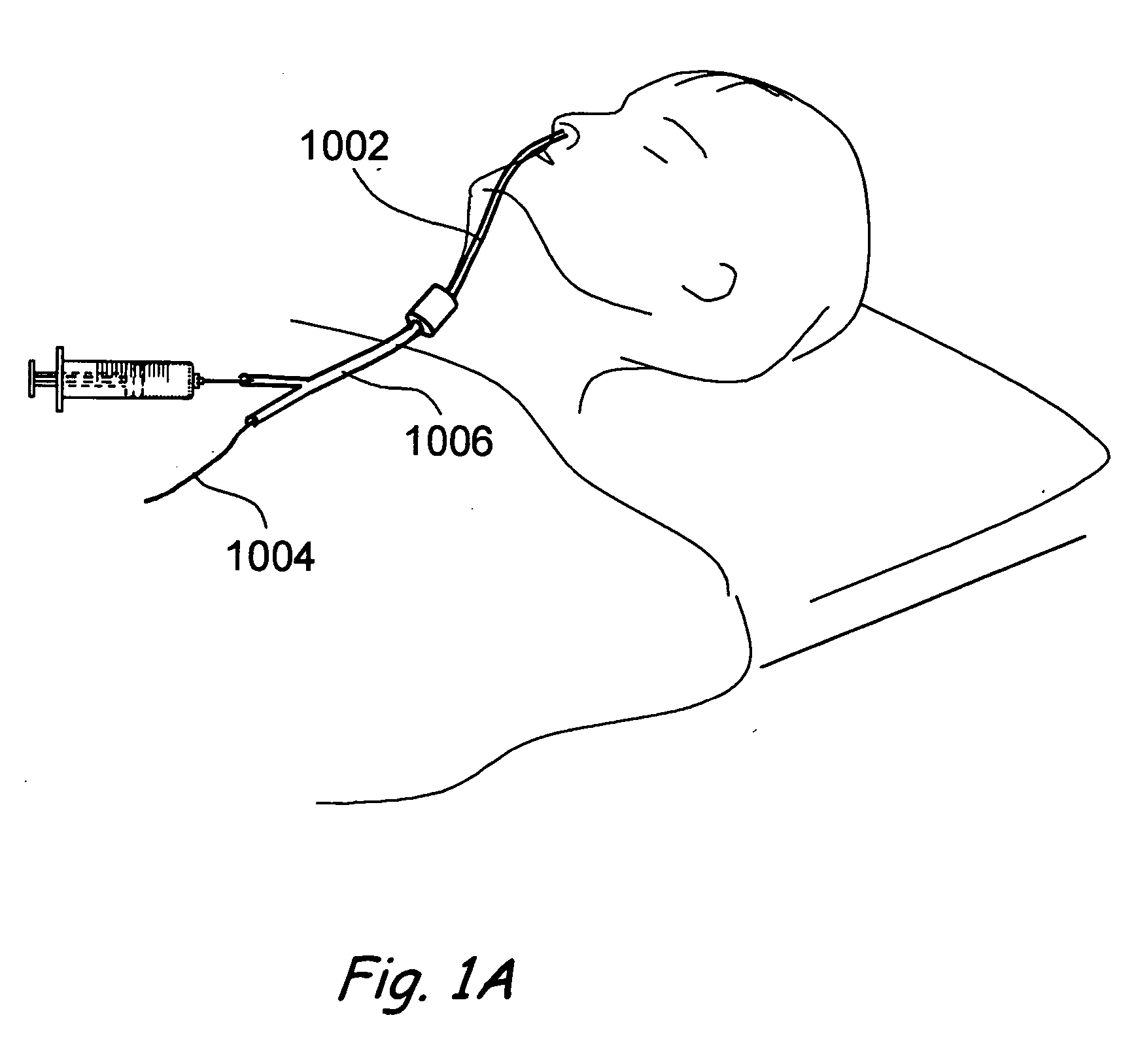Use of mechanical dilator devices to enlarge ostia of paranasal sinuses and other passages in the ear, nose, throat and paranasal sinuses
a technology of paranasal sinuses and mechanical dilators, which is applied in the field of medical devices and methods, can solve the problems of damage to the epithelium that lines the sinuses, blocked passageways which drain through the paranasal sinuses, and mucosal congestion within the paranasal sinuses, and achieve the effect of facilitating the insertion of working devices
- Summary
- Abstract
- Description
- Claims
- Application Information
AI Technical Summary
Benefits of technology
Problems solved by technology
Method used
Image
Examples
first embodiment
[0199] FIGS. 10A through 10E′ show side views of embodiments of guide devices. One or more of these guide devices may be provided as a part of the system shown in FIGS. 9A through 9D. FIG. 10A shows a side view of a guide device comprising a substantially straight distal portion. Guide device 1000 comprises an elongate tube 1002. Elongate tube 1002 may be made of suitable biocompatible materials such polymers e.g. Nylon, Pebax, etc. In a preferred embodiment, the material of elongate tube 1002 has Rockwell hardness in the range of about 70 R to about 110 R. In this preferred embodiment, the distal portion is flexible enough to prevent or reduce damage to the anatomy. Yet, the distal portion is rigid enough to retain its shape as one or more devices are passed through guide device 900. Furthermore, the distal portion is rigid enough to enable a user to use the distal portion to displace anatomical structures. The distal portion of elongate tube 1002 comprises a curved, bent or angled...
second embodiment
[0201]FIG. 10C shows a side view of a guide device comprising a bent, angled or curved distal portion. The design of guide device 1020 is similar to the design of guide device 1010. Guide device 1020 comprises an elongate tube 1022. The distal portion of elongate tube 1022 comprises a curved, bent or angled region curved at an angle ranging from 30 degrees to 100 degrees. In this embodiment, distal portion of elongate tube 1022 is bent by an angle of around 70 degrees. The distal portion of elongate tube 1022 comprises an atraumatic tip 1024. Guide device 1020 further comprises a hypotube 1026. The proximal end of guide device 1020 comprises a hub 1028. In one embodiment, hub 1028 is a female luer hub. Hub 1028 may have wings 1029 to enable a user to turn guide device 1020. FIG. 10C′ shows an enlarged view of the distal portion of the guide device in FIG. 10C. FIG. 10C′ shows elongated tube 1022 enclosed by hypotube 1026. Distal end of elongated tube 1022 comprises atraumatic tip 10...
PUM
 Login to View More
Login to View More Abstract
Description
Claims
Application Information
 Login to View More
Login to View More - R&D
- Intellectual Property
- Life Sciences
- Materials
- Tech Scout
- Unparalleled Data Quality
- Higher Quality Content
- 60% Fewer Hallucinations
Browse by: Latest US Patents, China's latest patents, Technical Efficacy Thesaurus, Application Domain, Technology Topic, Popular Technical Reports.
© 2025 PatSnap. All rights reserved.Legal|Privacy policy|Modern Slavery Act Transparency Statement|Sitemap|About US| Contact US: help@patsnap.com



